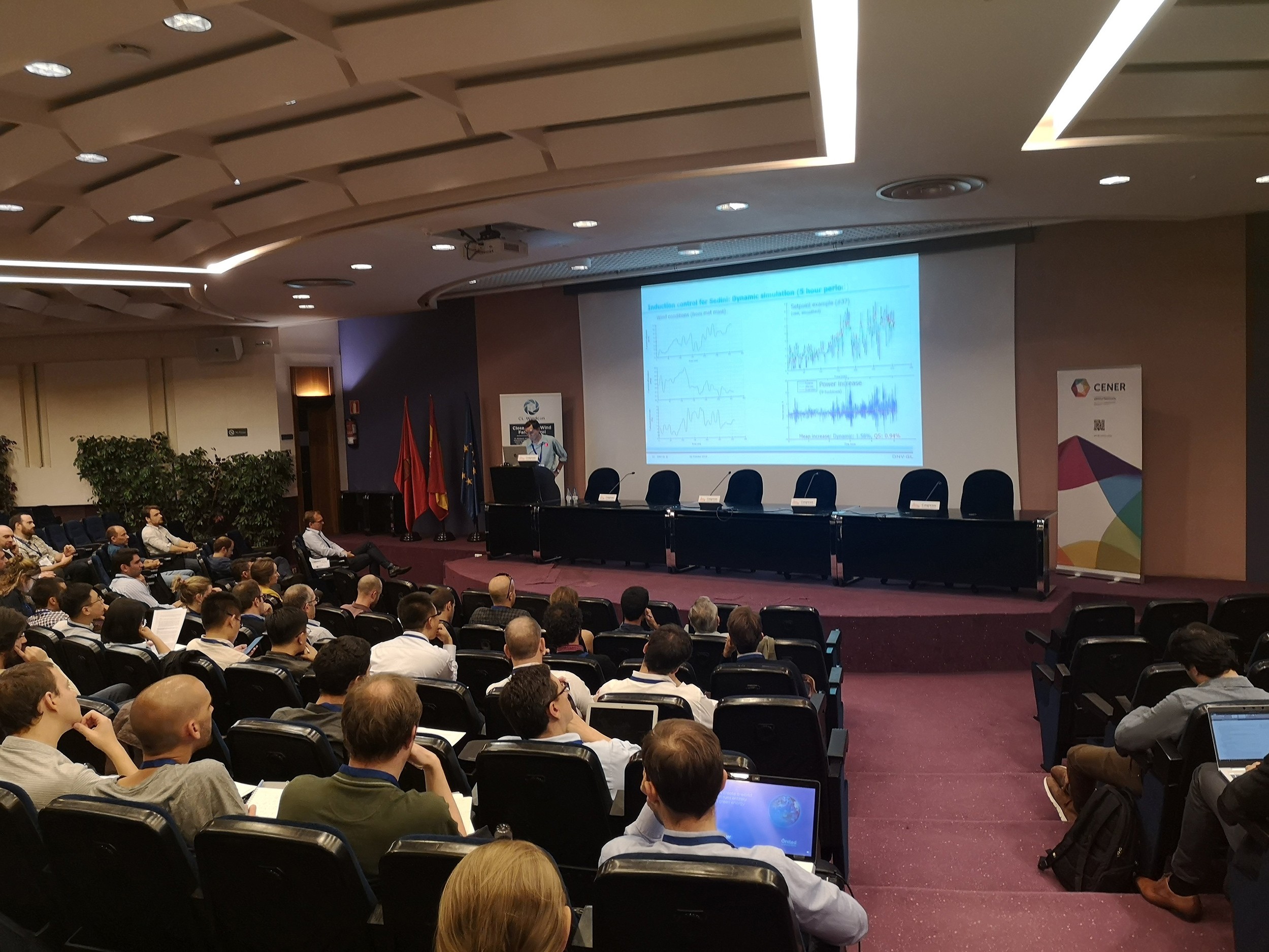CENER organizes an international workshop for systems engineering in wind energy (WESE), coinciding with the final conference of CL-Windcon project
Manu Ayerdi, regional minister for Economic and Business Development of the Government of Navarra and president of CENER, opened on Wednesday of last week in Pamplona (Spain) the 5th Wind Energy Systems Engineering Workshop (WESE 2019), which coincided on this occasion with the Final Conference of the European project CL-Windcon, led by CENER. More than 150 wind energy specialists from 60 national and international entities participated in these conferences organized by CENER (National Renewable Energy Centre of Spain), in collaboration with the Technical University of Denmark (DTU) and the National Renewable Energy Laboratory of the United States (NREL), and they took place in the Navarre capital for three days. In addition to the regional minister Ayerdi, the managing director of CENER, Pablo Ayesa, and Mario Garcia-Sanz, ARPA-E Programs director of the United States Department of Energy, participated in the opening ceremony. CL-Windcon Final Conference CL- Windcon is a project of the Horizon 2020 Research and Innovation Framework Program of the European Union (contract no. 727477), coordinated by CENER, in which a consortium formed by 15 partners including industrial partners, technology centers and universities has participated for 3 years. It also has NREL as an external advisor. The Project, which has a budget of 5 million euros, proposes a new way to focus and optimize the design and operation of a wind farm, considering it as an integrated global system. To do this, it addresses the development of multi-fidelity tools for advanced modeling of wind flow within the wind farm and the interactions among wind turbines, at a reasonable computational cost. From these models, the design of technologies and algorithms of farm control is developed in open loop and closed loop, which allows operating the wind turbines in a coordinated and optimized way in real time, thus reducing the existing uncertainty. Validations of the models generated in the project and of the control algorithms have been carried out through high-fidelity simulation tests, in wind tunnel tests and also in real-scale campaigns in a wind farm. The ultimate goal is to reduce the Levelized Cost of Energy (LCOE) of wind farms, through the impact on increased production, improved efficiency, decreased operating and maintenance costs and extended life time. Another challenge has been to have achieved the application of the new solutions in both existing and new wind farms. Website of the project: http://www.clwindcon.eu(opens in new window) The 5th Wind Energy Systems Engineering Workshop (WESE 2019) is a technical event held every two years, in which international speakers participate to discuss relevant aspects of systems engineering and the wind energy industry. Some examples of systems engineering application are the optimized design of the blades from the aerodynamic and structural point of view, the optimized transmission design or the integrated control co-design of the wind turbine and the floating wind substructure. The latter is a good example of how technological boundaries can be challenged and overcome by systems engineering. Another application is the control of wind farms, which is precisely about CL-Windcon project. For this reason, the synergy between both events is clear, taking into account that the control of the wind farm plays an important role in the field of systems engineering applied to wind energy.



